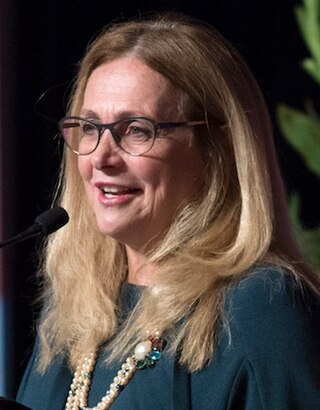Related Research Articles

In the United Kingdom and some Commonwealth countries, a King's Counsel is a senior trial lawyer appointed by the monarch of the country as a 'Counsel learned in the law'. When the reigning monarch is a woman, the title is called Queen's Counsel.

The Supreme Court of Canada is the highest court in the judicial system of Canada. It comprises nine justices, whose decisions are the ultimate application of Canadian law, and grants permission to between 40 and 75 litigants each year to appeal decisions rendered by provincial, territorial and federal appellate courts. The Supreme Court is bijural, hearing cases from two major legal traditions and bilingual, hearing cases in both official languages of Canada.

Same-sex marriage was progressively introduced in several provinces and territories of Canada by court decisions beginning in 2003 before being legally recognized nationwide with the enactment of the Civil Marriage Act on July 20, 2005. On June 10, 2003, the Court of Appeal for Ontario issued a decision immediately legalizing same-sex marriage in Ontario, thereby becoming the first province where it was legal. The introduction of a federal gender-neutral marriage definition made Canada the fourth country in the world, and the first country outside Europe, to legally recognize same-sex marriage throughout its borders. Before the federal recognition of same-sex marriage, court decisions had already introduced it in eight out of ten provinces and one of three territories, whose residents collectively made up about 90 percent of Canada's population. More than 3,000 same-sex couples had already married in those areas before the Civil Marriage Act was passed. Most legal benefits commonly associated with marriage had been extended to cohabiting same-sex couples since 1999.

Judge Judy is an American arbitration-based reality court show presided over by former Manhattan Family Court Judge Judith Sheindlin. The show featured Sheindlin as she adjudicated real-life small-claims disputes within a simulated courtroom set. Prior to the proceedings, all involved parties signed arbitration contracts agreeing to Sheindlin's ruling. The show aired in first-run syndication. As it was during its active years in production, it continues to be distributed by CBS Media Ventures in syndication, now in reruns that still draw notably high ratings.

Judith Susan Sheindlin, known professionally as Judge Judy, is an American court-show arbitrator, media personality, television producer, philanthropist, and former prosecutor and Manhattan family court judge.

The Constitution Act, 1867, originally enacted as the British North America Act, 1867, is a major part of the Constitution of Canada. The act created a federal dominion and defines much of the operation of the Government of Canada, including its federal structure, the House of Commons, the Senate, the justice system, and the taxation system. In 1982, with the patriation of the Constitution, the British North America Acts which were originally enacted by the British Parliament, including this Act, were renamed. However, the acts are still known by their original names in records of the United Kingdom. Amendments were also made at this time: section 92A was added, giving provinces greater control over non-renewable natural resources.
Events from the year 2005 in Canada. This year was recognized, by Veterans Affairs Canada, as the Year of the Veteran.

Same-sex marriage has been legal in New Brunswick since June 23, 2005 in accordance with a ruling from the Court of Queen's Bench of New Brunswick. This decision followed similar cases in eight other provinces and territories, and pre-dated by only one month the federal Civil Marriage Act of 2005, which legalised same-sex marriage throughout Canada. New Brunswick became the ninth jurisdiction in Canada to recognise same-sex marriage, and the twelfth worldwide.
The Court of King's Bench of New Brunswick is the superior trial court of the Canadian province of New Brunswick.
The Manitoba Court of Appeal is the court of appeal in, and the highest court of, the Canadian province of Manitoba. It hears criminal, civil, and family law cases, as well as appeals from various administrative boards and tribunals.

The monarchy of Canada forms the core of each Canadian provincial jurisdiction's Westminster-style parliamentary democracy, being the foundation of the executive, legislative, and judicial branches of government in each province. The monarchy has been headed since September 8, 2022 by King Charles III who as sovereign is shared equally with both the Commonwealth realms and the Canadian federal entity. He, his consort, and other members of the Canadian royal family undertake various public and private functions across the country. He is the only member of the royal family with any constitutional role.

New Brunswick has had, since the Legislative Council was abolished by an act passed on 16 April 1891, a unicameral legislature called the Legislative Assembly of New Brunswick with 49 seats. The legislature functions according to the Westminster system of government. Elections are now held at least every five years but may be called at any time by the lieutenant governor on consultation with the premier.
Gregory Allan Despres was convicted of the murders of Fred Fulton, 74, and Veronica "Verna" Decarie, 70, of Minto, New Brunswick, Canada, after stabbing them on April 23, 2005. He also decapitated Fulton with a homemade sword. On March 5, 2008, the Court found Despres guilty, but not criminally responsible for his actions at the time.
Joseph Zénon Daigle, is a Canadian lawyer and a former politician and Chief Justice of New Brunswick.
A court show is a broadcast programming subgenre comprising legal dramas and reality legal programming. Court shows present content mainly in the form of legal hearings between plaintiffs and defendants presided over in one of two formats: scripted/improvised with an actor portraying a judge; or an arbitration-based reality format with the case handled by an adjudicator who was formerly a judge or attorney.

Hot Bench is a nontraditional panel-based court show that made its debut in first-run syndication on September 15, 2014. The series is produced by Judge Judy's Judge Judy Sheindlin, who also created the program and concept with executive producers Randy Douthit, Maureen FitzPatrick, and David Theodosopoulos and co-executive producer James Glover for CBS Media Ventures.

Robert Michael Rinder, sometimes known as Judge Rinder, is a British criminal barrister and television personality. In 2014, while still a practising barrister, he began hosting the reality courtroom series Judge Rinder. In 2019, he also began hosting the Channel 4 series The Rob Rinder Verdict.
Richard Jamieson Scott, also known as Dick Scott, is a Canadian jurist who served as Chief Justice of Manitoba. In that capacity, he presided over the Manitoba Court of Appeal from 1990 to 2013. Among his most notable decisions are those in the cases Rebenchuk v Rebenchuk (2007), Manitoba Métis Federation Inc v Canada et al. (2010), O’Brien v Tyrone Enterprises Ltd (2012), and, while he was on the Court of Queen's Bench of Manitoba, R v Lavallee.

Sheilah L. Martin is a puisne justice of the Supreme Court of Canada, having served in that role since December 18, 2017. She was nominated to the court by Prime Minister Justin Trudeau on November 29, 2017. Before her appointment to Canada's highest court, Martin had served on the Court of Appeal of Alberta, the Court of Appeal for the Northwest Territories, and the Court of Appeal of Nunavut since 2016, and the Court of King's Bench of Alberta from 2005 to 2016. Martin is considered an expert in judicial ethics.
Sir Jonathan Mark Swift is a British High Court judge.
References
- ↑ "Judges of the Court of Queen's Bench". Court of Queen's Bench. Government of New Brunswick. 2004. Archived from the original on February 23, 2019. Retrieved 27 December 2010.
- ↑ "The Hon. Judy L. Clendening". Canadian Law List. Retrieved December 19, 2023.
- ↑ "New Brunswick ruling clears way for gay marriage". CBC News. Canadian Broadcasting Corporation. 23 June 2005. Retrieved 27 December 2010.